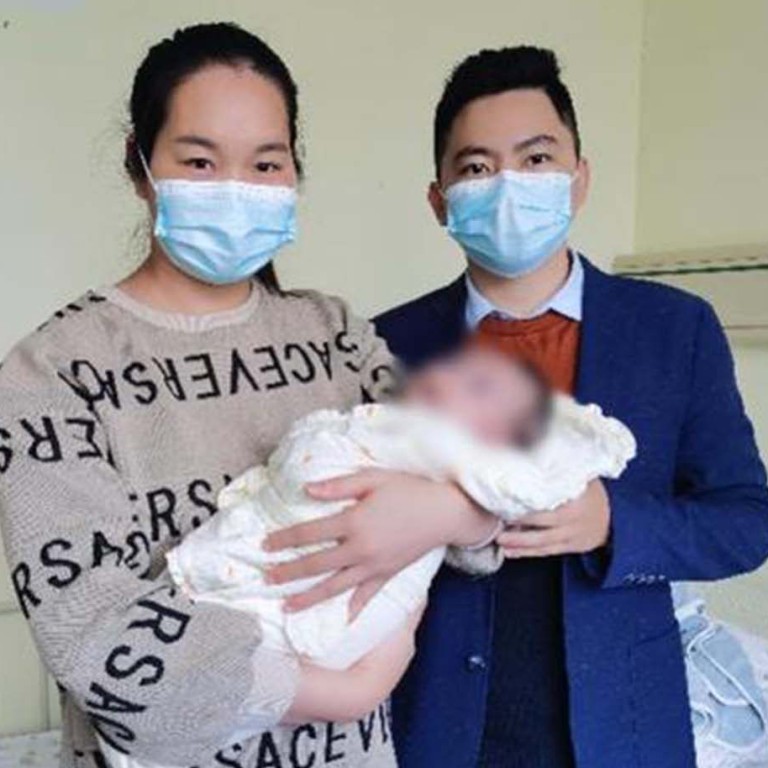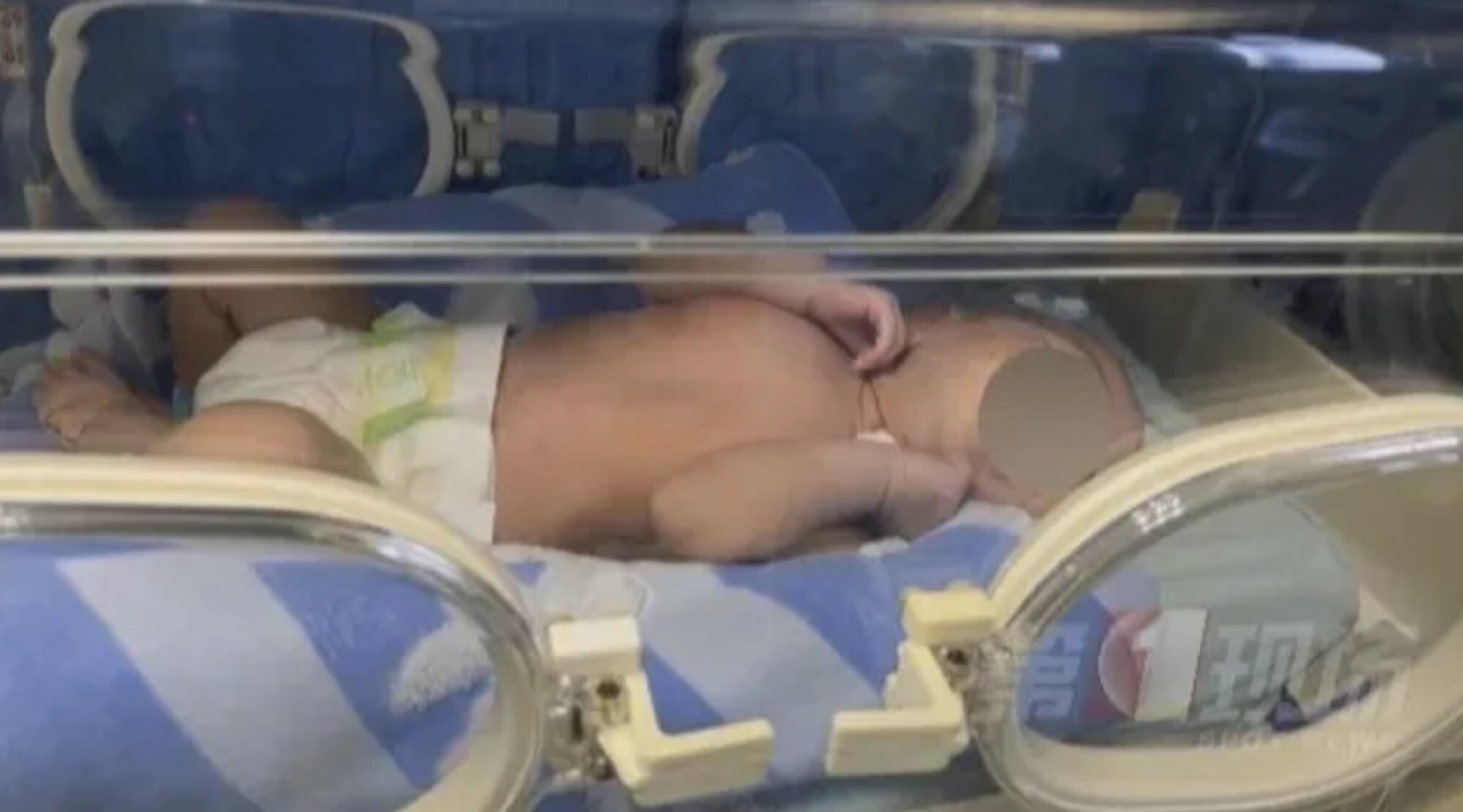
Chinese doctor travels hundreds of kilometres to save life of newborn baby with breathing difficulties after father’s appeal
- A doctor packed up his surgical instruments and travelled 650 kilometres to perform surgery on a seriously ill newborn baby
- The baby boy was diagnosed with congenital bilateral vocal cord paralysis after doctors noticed he was unable to breathe by himself
A Shenzhen-based medical expert has travelled hundreds of kilometres to China’s eastern Fujian province to carry out life-saving surgery on a newborn baby.
The baby boy was born on March 14 in Quanzhou, Fujian. But doctors immediately noticed that he cried in a low voice and was not able to breathe independently. The baby was sent to intensive care and placed on a ventilator at Quanzhou Children’s Hospital, the South Metropolis News reported.
The baby boy was diagnosed with a medical condition known as congenital bilateral vocal cord paralysis. However, doctors at the hospital said they could not treat it due to a lack of medical expertise. The disorder causes breathing difficulties and can be life-threatening because the patient can’t control the muscles that open and close the vocal cords as a result of nerve damage which can narrow or block the airway.
Chinese father makes daughter dig for lotus roots in the sun to value education
The boy’s father, Li Liangliang, searched online and found that in mainland China, only doctors in Shanghai and Shenzhen had the expertise to treat such a young patient with the disorder. Since Shanghai is currently under a coronavirus lockdown, he appealed to the health officials in Shenzhen for help.
Hours after Li’s appeal was posted on social media, the Shenzhen Municipal Health Commission responded that they would send experts from the Shenzhen Children’s Hospital to Quanzhou to perform the life-saving surgery.

Doctor Pan Hongguang and a colleague packed their surgical instruments before travelling to Quanzhou, which is about 650km away from Shenzhen, on April 5.
The doctor decided against the traditional method of cutting the trachea in surgery, as he felt this would lead to speech difficulties for the baby later in life, or the child would have to wear a tracheal tube for the rest of his life and risk recurrent infections. Instead, he chose a minimally invasive surgery to move the two vocal cords to let more air through.
“It’s like pulling two doors’ hinges back a bit and fixing them in place in order to create more space for airflow and enable smoother breathing,” Pan explained.
“This surgery also will not affect the patient’s ability to speak. If successful, there is no need to cut the trachea.”

The surgery took two and a half hours to complete on April 6. The baby recovered well and was able to breathe by himself on the fifth day following the operation and was discharged from the hospital on April 18.
After Pan returned to Shenzhen, the father asked a friend in Shenzhen to send a red silk banner with the words “excellent medical skills! Love warms the world” as a gift to show his gratitude.
“We are very happy to receive recognition from the patient’s family,” said Pan.

